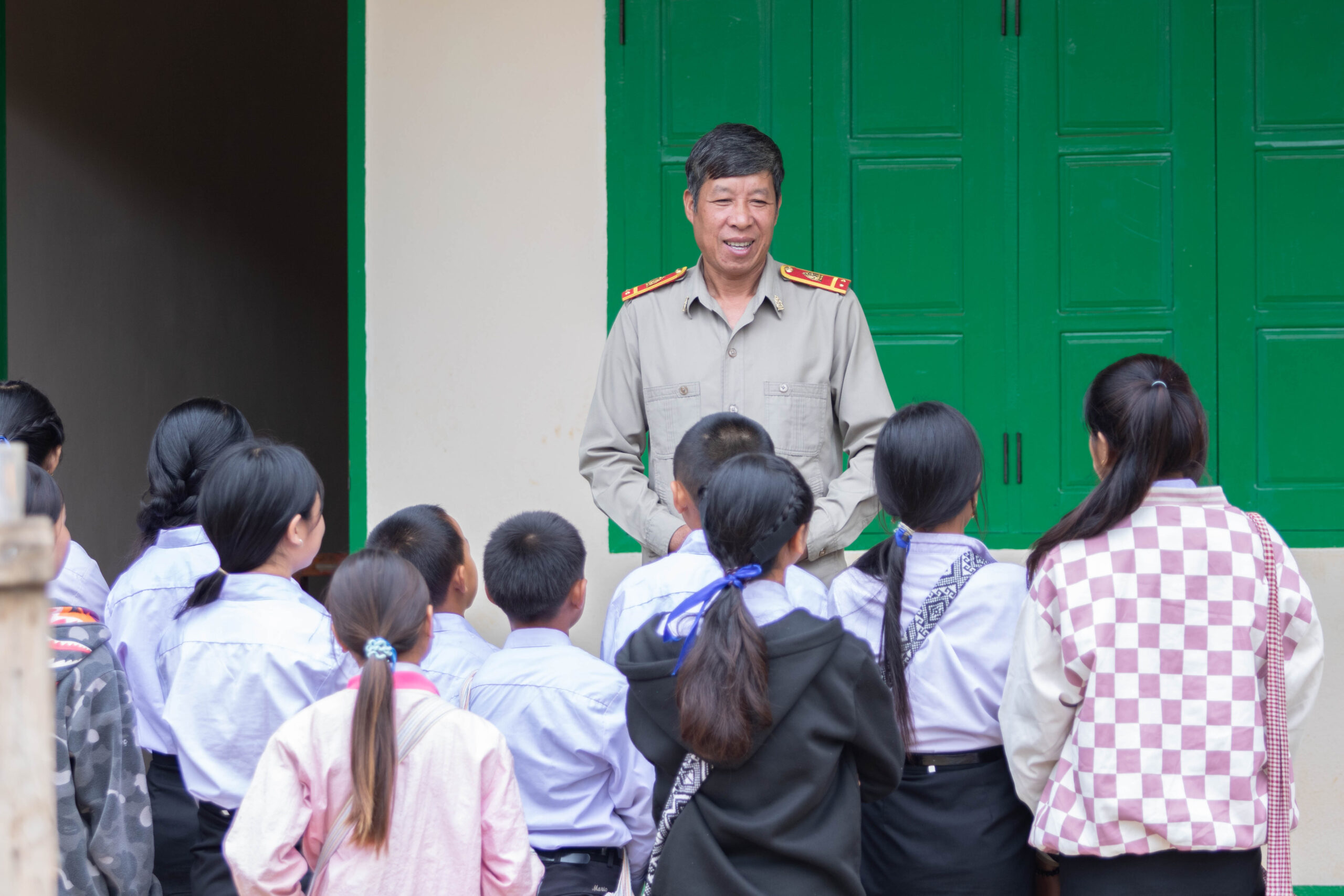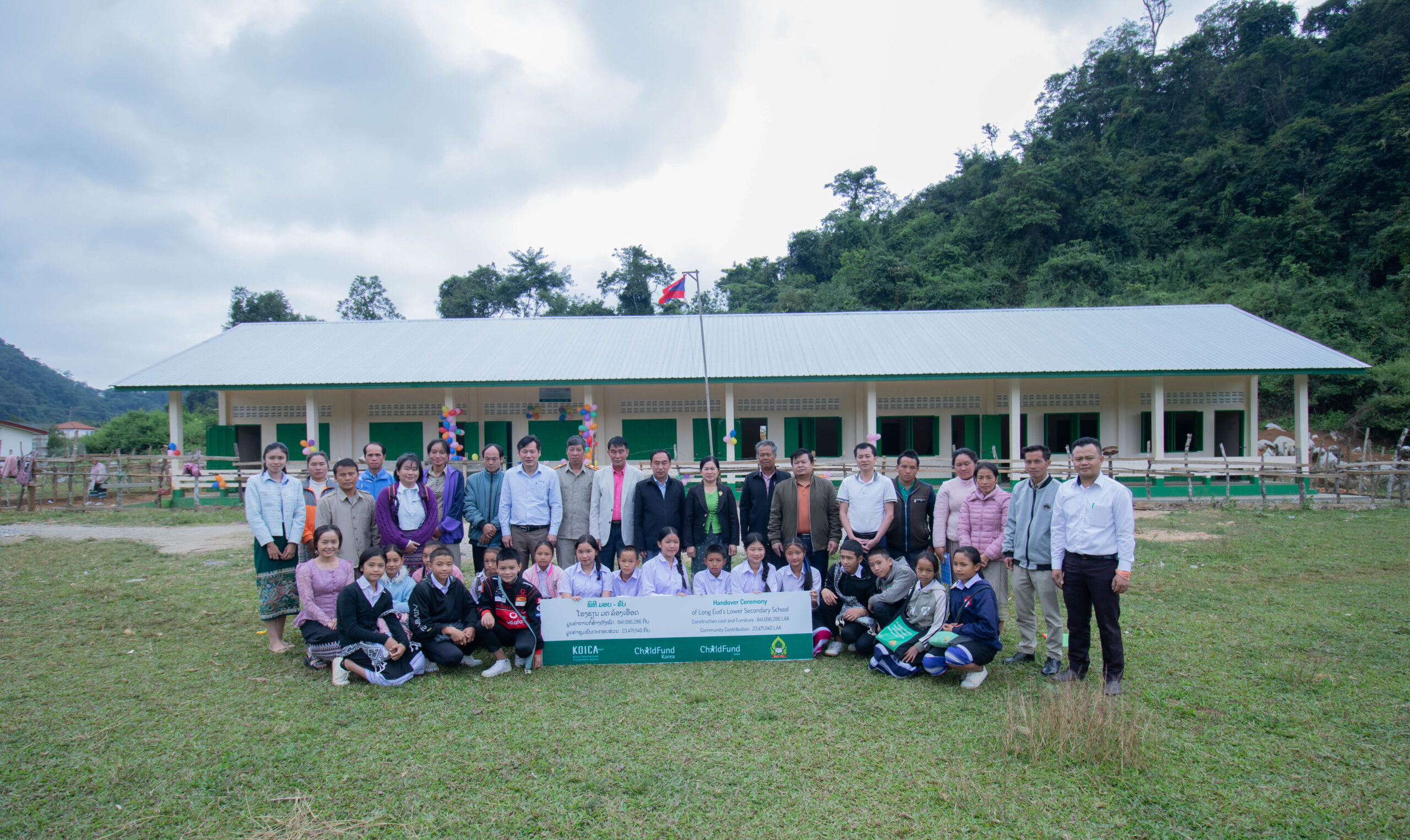In rural communities in Laos, there is no shortage of challenges in school education. But having proper floors shouldn’t be one of them.
Maiphouan is 14, and today looks forward to going to school, even though she wasn’t always a motivated student. “It was hard to focus,” she says, explaining that she and her friends used to have coughing fits during lessons. Their classroom, an open bamboo hut with dirt floors, didn’t have the infrastructure to support their wellbeing. “A cloud of dust would appear every time someone walked by or when we cleaned the classroom.”
Maiphouan’s school, located in a rural community in Houaphanh Province, was in urgent need of renovations. The roof was leaking, and the building was cramped and dilapidated. The school lacked basic learning equipment and resources.
To help improve the learning environment for children like Maiphouan, and make sure they continue their education, ChildFund in Laos constructed five new, fully furnished school buildings in Houaphanh Province. These buildings were designed to create a safe and supportive learning environment and encourage all children, regardless of their background or circumstance, to pursue higher education.
Barriers to learning
For many children living in rural communities in Laos, factors such as poverty, accessibility and traditional beliefs have long prevented them from going to school. Families live in isolated, mountainous areas, far from schools and without vehicles or public transport. Poverty means that children sometimes need to work, instead of going to school, to support their families’ income.
Children in these areas who do attend school learn in overcrowded classrooms without adequate equipment and learning materials. There is also often a shortage of teachers and poor school facilities. These are just a few of the challenges children face accessing a quality education.


Restoring students’ focus
ChildFund and local partners helped to build four new classrooms, enabling children in Houaphanh Province to enjoy a cleaner, safer, and more comfortable learning environment. Maiphouan says that her old school building made it impossible to study. It had no windows and a dirt floor that became muddy and slippery when it rained. The roof was also full of holes.
With their new classrooms, Maiphouan and her friends can now breathe a sigh of relief. “I like the new school building, especially the concrete floors,” she says. “We can now breathe fresh air. We don’t get wet when it rains and, in winter, the classrooms aren’t freezing. We can concentrate on our studies all year round.”
New dormitory improving school attendance
ChildFund transformed Maiphouan’s old school building into a dormitory. Nouanthong, the school director, says that having an option to stay on campus instead of spending hours commuting each day, has had a positive impact on student attendance. “Last year, there were only 70 to 80 students, but now there are 115 students,” he says. This includes 72 students from ethnic minority groups, mostly the Hmong.
Student engagement has also increased thanks to the new school buildings’ modern amenities and facilities including unisex toilets, a well-stocked library, and classrooms complete with chairs and desks. Nouanthong says the support of ChildFund has improved children’s attitudes towards learning. “The students are now highly motivated to attend school and look forward to lessons.”





























